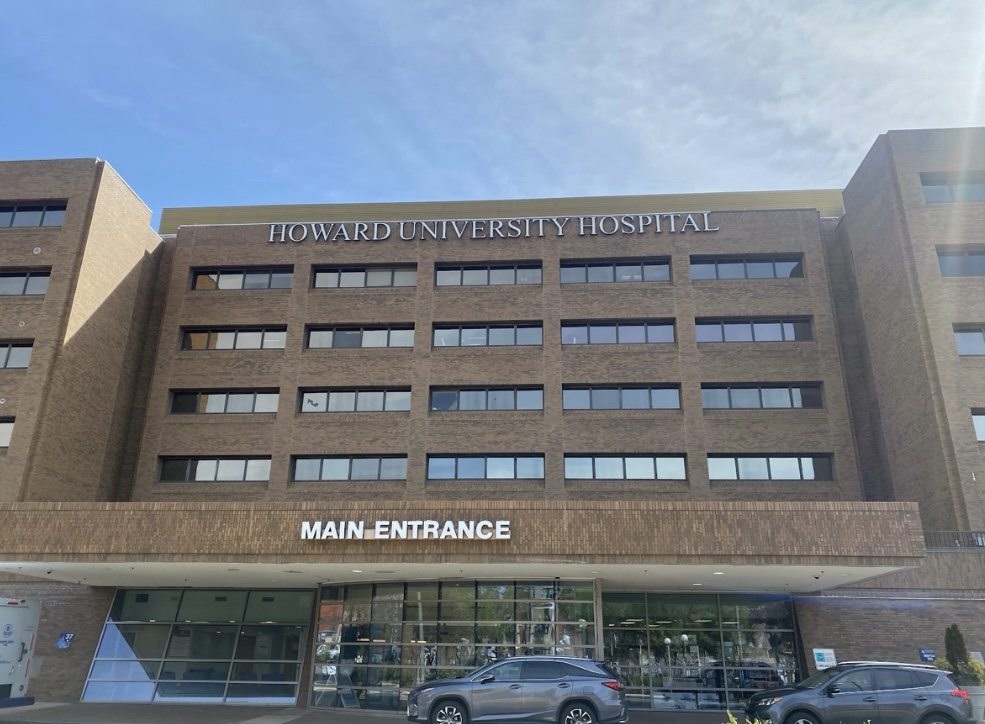
A graduate medical education body has withdrawn accreditation from the Howard University Orthopaedic Surgery Residency program due to a resident complaint, according to a program official.
Effective Feb. 21, the program’s accreditation is withdrawn but is under appeal, according to the accreditation council’s website.
If the decision withstands appeal, the 19 residents in the program will be dispersed to various accredited programs beginning in June – leaving the nation’s only historically Black orthopedic surgery program unaccredited and without residents.
Dr. Andrea Hayes Dixon, dean of the College of Medicine, confirmed the accreditation withdrawal and said the university is working to challenge the decision but declined to provide reasons why the program lost its accreditation.
“We will not comment on the specifics of the decision or our appeal of it while the appeal is pending,” Dixon said in an emailed statement. “The University is working with the affected residents and their collective bargaining representative to secure appropriate placement in programs sponsored by other Universities and Academic Medical Centers.”
Dr. Robert Wilson, the interim program director, said that the accreditation withdrawal was the result of a series of problems that developed within the program over the last few years, leading to a formal complaint from a resident to the Accreditation Council for Medical Graduate Education (ACGME).
“We had some structural issues, as many residencies do,” Wilson said. “Sometimes you need to do a certain amount of surgeries, or you have to have a certain number of doctors who teach. We’re the only HBCU program in the country. We don’t always have all the resources that we need like many other places.”
According to the ACGME records, the orthopedic program received accreditation warnings from 2019 to 2020, followed by a “probationary accreditation” status from 2021 to 2023. University officials did not confirm if the accreditation withdrawal was congruent with the probationary periods.
Due to confidentiality between the ACGME and sponsoring institutions, the accrediting body cannot disclose details surrounding a program’s accreditation status. However, the medical council’s policy states that accreditation can be withheld when a sponsoring institution “has not demonstrated substantial compliance with the applicable requirements.”
Accreditation requirements include overseeing resident assignments, quality of working and learning environments and dedicated professional time to perform surgical procedures. Wilson said that in addition to the resident complaint, the number of completed surgeries for the program was a minor issue in the accreditation review.
“We met the requirements for how many surgeries each resident needs to obtain before they leave,” Wilson said. “The only issue is our numbers were a little lower than the national average, and we were called out on that.”
Accredited orthopedic surgery programs must complete a minimum of 200 pediatric procedures, according to ACGME guidelines. This includes 10 ACL reconstruction procedures and 15 ankle fraction procedures, among other practices totaling more than 250 surgical procedures.
Wilson added that the program had since made changes to address the surgery concerns. The university did not respond to comment on the number of surgical procedures the program completed.
Some orthopedic surgeons who completed their residency at Howard said they fear that the accreditation loss will have a significant impact on the racial diversity of the orthopedic field. As of 2022, researchers were calling orthopedics the “least diverse surgical specialty,” as less than 2 percent of orthopedic surgeons are Black.
“Howard is a safe space for Black orthopedic surgeon trainees,” Dr. James Carson, a Texas-based orthopedic surgeon, said. “I know a lot of people who have faced a lot of discriminatory actions and even malicious activities towards them at other programs.”
Carson said he believes the loss of residents in the area may also impact the community, as residency programs allow for patients to receive a greater amount of care. Rotational sites in the Howard program are located across the District and include the Howard University Hospital, Children’s National Hospital, Doctors Community Hospital, Veteran Affairs Medical Center and the Washington Hospital Center.
Second-year orthopedic surgery resident Miranda Barnes described the accreditation loss as “heartbreaking.” The Florida native said she was drawn to the program for its mentorship opportunities from other Black orthopedic surgeons at Howard.
“I think that this is one of the most significant losses in orthopedics ever,” Barnes said. “There’s a reason why people are coming to Howard, and it’s to see doctors who look like them and to be taken care of by doctors who understand them.”
Since she received notice of the accreditation loss, Barnes has spent much of her time reaching out to orthopedic surgery programs across the country in hopes of finding a place to complete her residency.
Barnes said she has not learned from the university why the program lost its accreditation but emphasized her support for the program and HBCU education.
“Howard orthopedics must continue. It has to continue,” she said. “We can’t take our foot off the gas when it comes to supporting our HBCUs.”
This story was produced by the Howard University News Service.
































